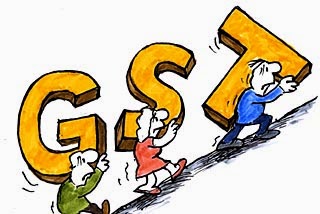GST i.e the Goods and Services tax is a value added tax or an indirect tax which will be levied on manufacturing, sale and consumption of goods and services. It is being considered as a major improvement over the pre existing central excise duty at national level and sales tax at state level.
The discussion on GST was first started by Atal Bihari Vajpayee in 2000 when an empowered committee was set up in this regard. Then in 2014, the bill was introduced in the lower house of the parliament by finance minister Arun Jaitley.
Now, finally this tax will be imposed from April 2016. It aims at being comprehensive for all goods and services and will replace all other indirect taxes levied by Central and State government.
Also, since India is a federal nation, this tax will be implemented concurrently by Central and State government as Central GST and State GST. Under this reform, exports will be zero rated and imports will be levied the same taxes as domestic goods and services adhering to the destination principles.
If you see the other nations and compare, then Singapore and New Zealand tax virtually everything at one rate. Indonesia has about 5 positive rates. Also seeing the tax scenario in Canada, one can only expect potentially good results in India after this reform, as when Canada replaced its earlier tax structure with GST then it observed an increase of 24 percent in its GDP.
Touted as a breakthrough and a logical step towards comprehensive indirect tax reform by some, this has again ignited a debate. The best GST systems across the world use a single GST, while India has opted for a dual-GST model. Critics claim that CGST, SGST and IGST are nothing but new names for Central Excise/Service Tax, VAT and CST, and hence GST brings nothing new to the table. So, now we not just as tax payers but also as spectators need to see how well this new reform proves to be. Let’s hope for some positive results! 😀
Click here for government certification in Accounting, Banking & Finance





9 Comments. Leave new
nice article.
again nice article with similar topic.
Nice article
It’s actually an age old concept first coined during the independence period by a renowned economist of that time. A different concept indeed, but will it be of any use in an economy as vast as ours?
well explained
I used to think that proper use of hydroelectricity power helped the economic boom in Canada. I believe GST too had a major role to play there.
I too have same apprehensions on what you said in last paragraph. But then all we can do is speculate. Lets see if this thing is discussed in Rajya Sabha or not in coming months.
And yes, Fantastic article.
Nice article
well written
well done 🙂